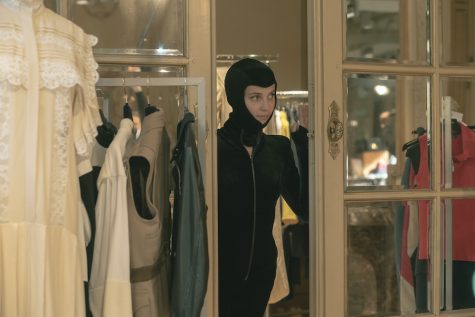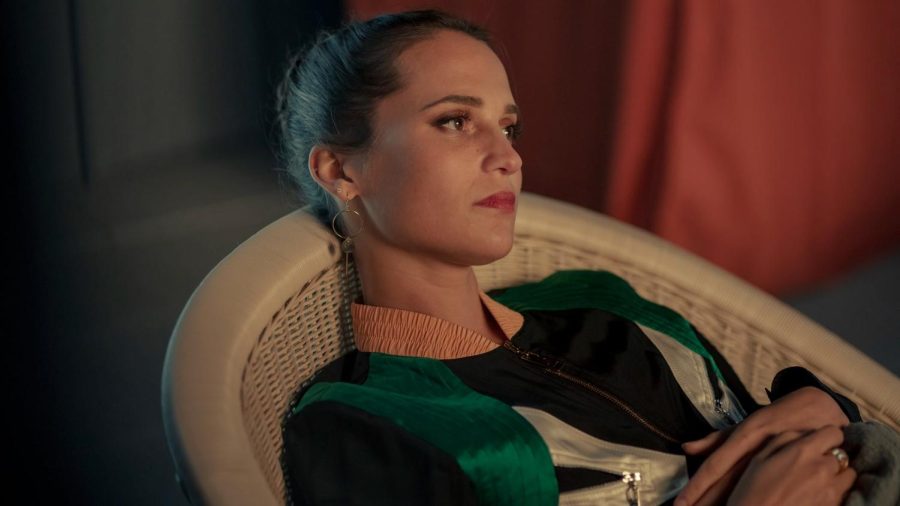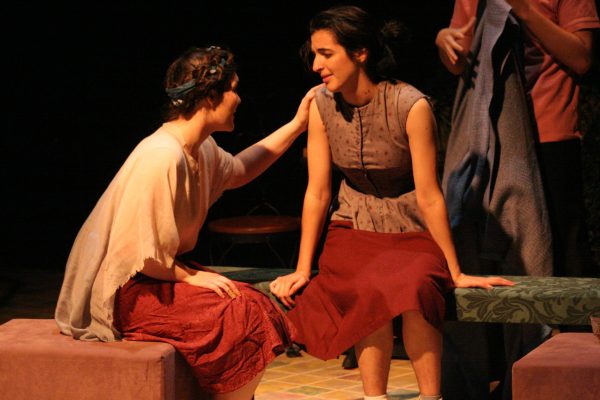Irma Vep Offers Sincere Exploration of Film Making
HBO’s Irma Vep is able to shine beyond its languid pacing in an unflinching yet humorous depiction of modern filmmaking. The series follows Mira (Alicia Vikander), a disillusioned actress navigating the foreign territory of French cinema, as she stars as black-suit specter vampiress Irma Vep in a remake of the 1915–16 silent serial film Les Vampires. The production of Les Vampires under French director René Vidal (Vincent Macaigne) allows the series to work as a meta-commentary on modern-day filmmaking.
What is particularly compelling about Mira’s character is that her cynicism toward her Hollywood success is not framed around seediness or exploitation. Instead, it is used to reveal a series of truths and ironies often taken at face value within modern cinema.
Director Olivier Assayas’ choice to highlight the locales — craft services, Parisian hotel rooms, and actor trailers — pulls the curtain back and exposes the mundane realities of life beyond the silver screen.
Irma Vep interweaves the series’ own footage with scenes from Les Vampires, giving viewers a window into French filmmaking of the 1910s. These flashback scenes, which are reenacted by the present-day cast of Irma Vep, highlight the rudimentary elements of filmmaking in the early 20th century. This is exemplified in a scene in which Irma Vep, played by Mira, lies in the path of an oncoming freight train before successfully escaping at the last second. This is contrasted by cast and crew ushering the actress off to another gig after completing the death-defying stunt.

Vikander and Macaigne’s performances weave together masterfully across the show’s eight-hour runtime. While Vikander’s portrayal of Mira demonstrates the mundane aspects of life as a global star, Macaigne’s portrayal of Vidal showcases the sacrifices required of those who devote their energy toward ensuring film projects see the light of day.
Throughout the series, Mira also attempts to avoid obligations at the advice of her agent Zelda (Carrie Brownstein). She fears the professional impediments of forming anything more than a friendship with her assistant Regina (Devon Ross) after a failed relationship with her previous assistant Laurie (Adria Arjona). Mira passes through many phases of her life and career, which makes her evolution into the “ghost” of Irma Vep — who phases through hotel walls — seem like a natural evolution of the character.
The series utilizes René Vidal’s character to examine the transcendental nature of cinema for the artists involved. His failed marriage to Jade Lee, the lead actress in the 1996 film of Irma Vep, acts as a thematic throughline for his arc. In the series finale, Vidal returns to the material world and reaffirms his devotion to his estranged wife and children. While Vidal remains grounded, Mira’s physical form is subsumed by the character of Irma Vep.
In its sincere exploration of filmmaking, Irma Vep is able to uniquely balance conversations around legacy casting; remakes, reboots, and retellings; and the merits of authenticity when adopting source material. Rather than telling a story about cinema with the noise of lights, cameras, and theatrics, Irma Vep instead uses an unconventional ghost story — a film that encapsulates the spirits of past lives and blurs the lines between the real and the imagined.








